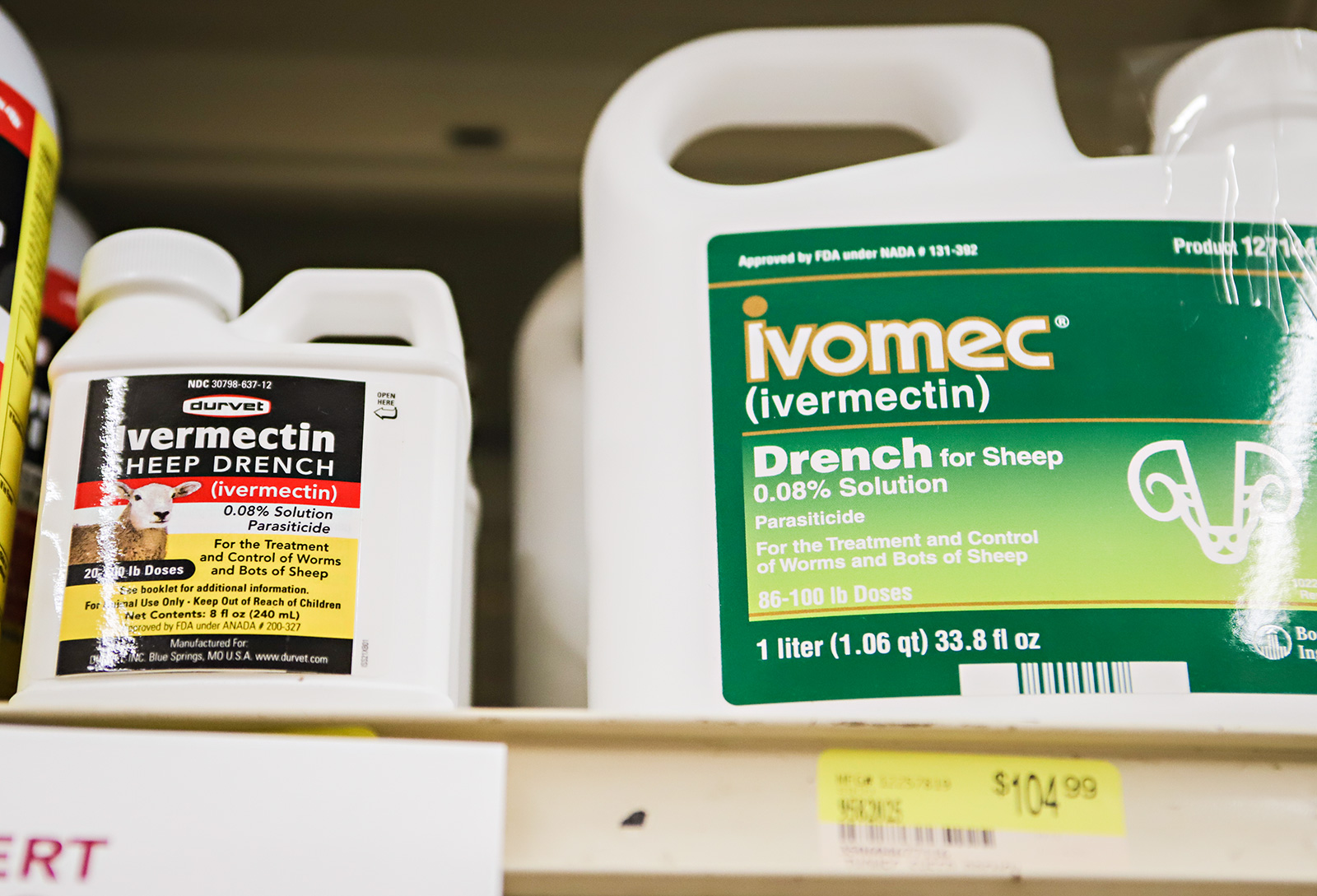Livestock Stores Report Increased Interest in Ivermectin
Health officials warn against using anti-parasitic medication to treat COVID-19, feed stores worry about product going out of stock
By Skye Lucas
Local livestock supply stores are noticing an uptick in purchases of the anti-parasitic drug ivermectin, fueled by misinformation that the drug treats COVID-19.
Health officials emphasize that humans should never take the veterinary-grade medicine, which is intended for animals. In recent months, Logan Health has received multiple emergency admissions with evidence of toxicity, leading doctors to suspect misuse of the drug.
The de-wormer drug is approved by the Food and Drug Administration (FDA) for use in animals to prevent heartworm and other internal or external parasites. Ivermectin is also FDA-approved for human usage to manage parasitic infections such as river blindness and strongyloides. It can also be used topically as an ointment for scabies.
Misinformation, however, has caused a recent surge in human-use prescriptions across the country among people hoping to treat COVID-19. Locally, feed-store employees have noticed an increase in inquiries for the drug, which is sold for livestock infections.
Aware of the drug’s recent misuse to treat Covid-19, store clerks from Murdoch’s Ranch & Home Supply and CHS are skeptical if new faces in search of the drug are purchasing it to treat farm animals, and worry that some customers are ingesting the de-wormer paste themselves.
Ben Dryden, a hardware associate at Murdoch’s, has noticed more people asking about ivermectin.
“I have a lot of people asking me, ‘Hey, is this for horses?’” he said. “And how long does it last? And how many pounds does it cover?’”
In response, Dryden has recommended that people talk to a doctor or a pharmacist for human ivermectin. Other than that, there isn’t much Dryden can do to prevent people from eating the anti-parasitic paste that he says is “meant for horses.”
Jeff Vauner, a retail manager at CHS, believes livestock stores in the valley will soon reach the point where inventory is low or out of stock if people continue to buy the drug for human consumption.
“A customer will come in and say, ‘Hey I’ve got livestock,’ and you sell it to them because they need it,” Vauner said. “They could be lying to us, but we don’t know that.”
“I think it’s crazy,” he added, “to use an animal-grade chemical for human consumption.”
Belief in the drug as a cure for COVID-19 stems from a lab study conducted by several medical institutes in Australia. The research study titled “The FDA-approved drug ivermectin inhibits the replication of SARS-CoV-2 in vitro” notes that the viral count of SARS-CoV-2, the virus that causes COVID-19, in green monkey kidney cells dramatically decreased when given the anti-parasitic agent.
Dr. Jeffrey Tjaden, an infectious disease specialist at Logan Health, said the results were gathered from petri dish samples and are not indicative of whether or not the drug is a beneficial or harmful treatment for COVID-19.
“What was used to kill the virus in those isolated cells was 100 times more than the amount of ivermectin us humans can absorb in our bodies,” Tjaden said. “So far, the CDC, World Health Organization (WHO) and the drug company Merck, which makes ivermectin, are not recommending it at this time to treat COVID-19.”
Common side effects in the human drug include rashes, hives, cramping, nausea and vomiting. Human-grade high dosage is dangerous and can trigger central nervous reactions such as hypertension, hallucinations, seizures and even coma or death. But the veterinary-grade drug can be especially dangerous.
According to Tjaden, veterinary-grade products use different fillers, like dye and other substances, while dosing, which is weight based, is much higher for horses than humans, making it even more toxic for human use.
In a recent study by the Centers for Disease Control and Prevention (CDC) that examined trends in ivermectin prescriptions, an average of 3,600 weekly prescriptions pre-pandemic increased to a peak of 39,000 prescriptions in the week ending on Jan. 8, 2021.
Since early July 2021, outpatient ivermectin rapidly increased to more than 88,000 prescriptions in the week ending Aug. 13, a 24-fold increase from the pre-pandemic baseline.
Poison control centers across the U.S. have received a five-fold increase in the number of calls for human exposures to ivermectin since July 2021, compared to pre-pandemic volumes.
For individuals considering the de-wormer for themselves, Tjaden said: “There are existing medicines we can use for COVID-19, and in the meantime, let’s take advantage of those.”